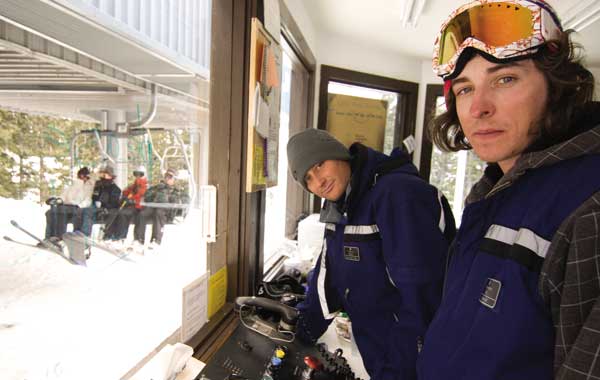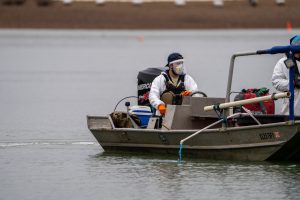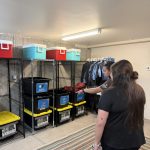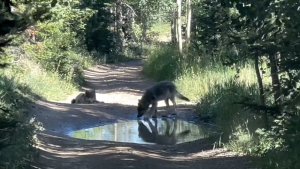Vail resort workers headed for overtime
Vail, CO Colorado

ALL |
VAIL, Colorado ” Many of Vail Mountain’s international workers will depart the valley just as the busy Easter season ramps up, Chief Operating Officer Chris Jarnot said Tuesday.
The company will call on other employees to work longer hours and extra days during the next month, Jarnot said.
“We’re going to be in a real serious challenge over the next four weeks,” Jarnot said.
Last year, new federal rules made it more difficult for companies to get H-2B workers under the nationwide cap of 66,000 visas per year.
Vail Resorts turned to J-1 student work-travel visas to meet its staffing needs, Jarnot said.

Support Local Journalism
Those visas expire April 1, but many of the J-1 workers will leave Vail before that date to travel around the U.S. before they return to school in their home countries, Jarnot said.
That figures to leave Vail Resorts with fewer workers around Easter, one of the busiest times of the year for the ski area. Lots of Latin American visitors come to Vail during that time.
And with Easter falling on March 23 ” the earliest it’s been since 1913 ” it will coincide with spring break, another busy time.
Even employees from Vail Resorts’ offices will be called upon to bus tables and load lifts, Jarnot said.
H-2B and J-1 workers make up fewer than 10 percent of Vail Resorts’ peak employment of 14,000. That includes all five of the company’s ski mountains and its hotels.
Jarnot said he was unwilling to extend the end of the ski season ” now set for April 13 ” partly because of the extra hours that he would be asking of his workers. Business owners had asked Vail Mountain to consider extending the season, especially in light of this year’s abundant snow.
Jarnot spoke at the town of Vail annual meeting Tuesday.
Across Vail Resorts’ five resorts ” Vail, Beaver Creek, Breckenridge, Keystone and Heavenly ” the company got “the majority” of the H-2B visas it needed, said spokeswoman Kelly Ladyga. The company’s five resorts are “appropriately staffed” for the remainder of the season, she said.
Vail Resorts beefed up domestic recruiting and used J-1 visas, she said.
“We’ve had to become much more creative in how we put together a work force,” Ladyga said.
Other ski resorts have turned to J-1 visas in light of the H-2B restrictions, said Jennifer Rudolph, spokeswoman for Colorado Ski Country USA.
“I think it’s been a little bit of stretch,” she said. “It wasn’t easy but they made it through the season.”
In Vail, other businesses are facing the same challenges on a smaller scale.
“We’re not in (Vail Mountain’s) situation because we can operate with fewer people and we can hire people short-term at the end of the season,” said Clark Wilkinson, manager of the Vail Mountain Adventure Center on Bridge Street in Vail Village.
The store has four workers on J-1 visas ” all from Argentina ” and two on H-2B visas ” both from South Africa. International workers are important to the store because they seem to be more willing to come for a season and work a front-line job, Wilkinson said.
One of the J-1 workers is leaving in a week, and the last is set to leave April 10, Wilkinson said.
“We’re trying to pick up a few locals to fill in some part-time shifts,” he said.
Wilkinson said he’s anticipating a busy Easter.
“Since spring break and Easter overlap this year, we expect that week to be pretty much chaos,” he said.
Staff Writer Edward Stoner can be reached at 748-2929 or estoner@vaildaily.com.










